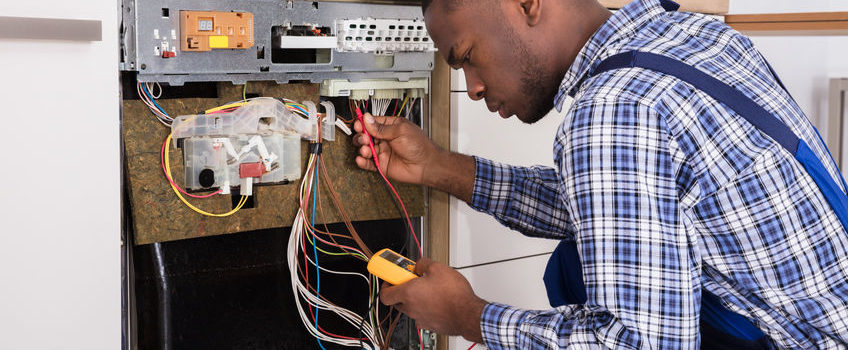
Most Common Questions People Ask Electricians
Here at Turner Electric, we love talking to our customers. We enjoy hearing about their experiences with our techs, and we love answering their questions about their electrical systems and more. We get a lot of the same questions on a regular basis, so we’ve compiled the top ones to better serve our valued customers.
What is the difference between a fuse and a circuit breaker?
Both of these things serve the same purpose—to disrupt the flow of electricity when an issue is sensed. But you’ve probably heard an electrician use the terms “blown fuse” and “tripped breaker.” This is where they differ. A fuse will be blown and no longer working when it does its job, so it will need to be removed and replaced by a qualified electrician. A circuit breaker, on the other hand, simply gets tripped when it does its job. It will not have to be replaced and resetting it is usually as simple as flipping a switch.
What is a GFCI outlet?
GFCI stands for ground-fault circuit interrupter. Their job is to protect people from electric shock in places where it might commonly occur without a GFCI outlet. They monitor the amount of electric current going through the outlet and can shut it off in the case of a surge or related problem. GFCI outlets are easily identified by the “test” and “reset” buttons on them. They are commonly used where water and moisture are present, such as in bathrooms, in kitchens, and outdoors.
What is an AFCI?
AFCI stands for arc-fault circuit interrupter. It is responsible for stopping the flow of electricity when a surge of “arc” occurs, which is usually caused by loose or damaged wires. These usually come in the form of a circuit breaker and stop the electricity so that wires do not become overheated, potentially causing a fire. They are a common type of circuit breaker that electricians can service in the many areas they are located within your home.
What does “short circuit” mean?
Short circuits occur when things not meant to carry electricity get a pulse of electricity. If electricity is traveling down a wire and somehow gets outside of its intended circuit with little resistance, it can cause a short circuit that results in sparks or damage to an electrical appliance. These usually occur when one wire touches another wire that it should not touch, whether due to damaged wires or loose connections.
Is my electrical panel safe?
This is one of the most loaded and important questions our Benbrook electricians get asked. If your home is older, your electrical panel may be a bit outdated, especially when it comes to handling the excessive electrical use that occurs in most homes. But even if your home is newer, your electrical panel could have some red flags that need to be addressed, such as cloth or aluminum wiring, double taps, fuse boxes, and certain types of panels that are less than ideal. If you want a full inspection of your electrical panel and home, get in touch with Turner Electric today.
LEAVE A COMMENT